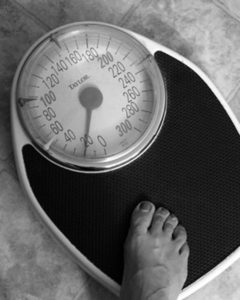False.
We often hear “The Freshman 15” to express the amount of weight supposedly gained by students in their first year of college. I’ve had the privilege of teaching health-related courses on college campuses in New York, Colorado and Wisconsin, so I’ve often dealt with this topic in classes and in my speaking engagements.
It is indeed true that most college students gain weight during their first year; however, it is not nearly 15 pounds. We’ll talk more about the actual number in just a bit.
First, I would like to explore factors that contribute to weight gain in college freshmen. One is alcohol consumption. A single drink can contain from 100–150 calories, so a student who consumes eight or 10 drinks in a night out with friends could be adding 800–1,500 calories that day. And students who have been drinking are often more likely to make a late-night food run; Taco Bell is one favorite. Those extra calories add up!
Some students get into trouble with the buffet/cafeteria-style all-you-can- eat dining services available on most college campuses. They return for two or three entrees, a variety of not-so-healthy side dishes and multiple high-calorie desserts. Who wouldn’t be tempted to end each meal with a huge soft-serve vanilla ice cream cone! Again, the new lifestyle offers lots of extra calories.
Many college students are less active than they were in high school. When I pose the question of how many students were involved in two or three sports in high school, routinely 80–90% of them raise their hands. A very small percentage of those same students compete in college athletics. They no longer engage in daily two-hour practices as they did in high school, so less physical activity means burning fewer calories.
Plus college can be hectic; many students hold part-time jobs and find that college-level classes require more study time. Both scenarios can negatively affect their levels of physical activity.
So just how many pounds do college freshman gain that first year? A large review article published in the Journal of American College Health by Vella-Zarb and colleagues (2009) reports results from 24 studies that examined weight gain in college freshman. The authors concluded, “Weight gain occurs during freshman year, although the amount of weight gained tends to be much less than the ‘Freshman 15’ suggests. Typical weight gain is closer to 5 lbs. than to 15 lbs.”
I think it’s interesting to note that young adults 18–19 years old who don’t go to college gain about the same amount of weight as those who do attend college. So perhaps a general lifestyle change, rather than entering college, is responsible for weight gain in this young-adult population.
Vella-Zarb, R., and Elgar, F. The ‘Freshman 5’: A meta-analysis of weight gain in the freshman year of college. Journal of American College Health (2009), Vol 58, pp. 161-166.

